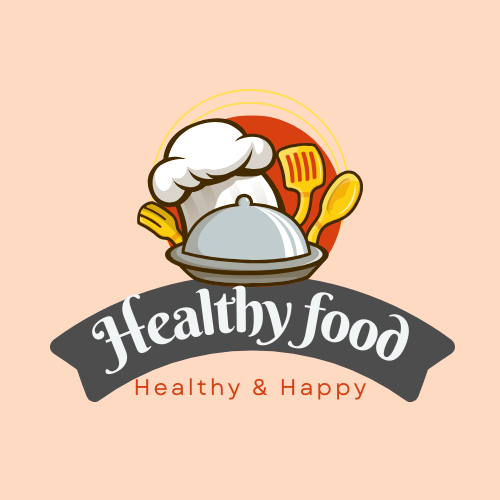The Hidden Dangers of Processed Foods: Why You Should Rethink Your Diet
In today’s fast-paced world, processed foods have become a staple in the average diet. Convenient, long-lasting, and often cheaper than fresh alternatives, they are everywhere—from breakfast cereals to frozen dinners. However, the convenience of processed foods comes at a significant cost to our health. Understanding the dangers of these foods and learning how to minimize their impact on our diets is crucial for long-term health and well-being.
What Are Processed Foods?
Before delving into the dangers, it’s important to clarify what we mean by "processed foods." In essence, processed foods are those that have been altered from their original state through methods like canning, freezing, refrigeration, dehydration, and aseptic processing. This includes everything from heavily processed items like sugary snacks and ready-to-eat meals to minimally processed foods like pre-cut vegetables and canned beans.
While not all processed foods are inherently bad, heavily processed items often contain high levels of added sugars, unhealthy fats, sodium, and artificial ingredients. These additives enhance flavor, extend shelf life, and improve texture, making processed foods more appealing and addictive.
The Dangers of Processed Foods
1. High in Unhealthy Ingredients
Many processed foods are packed with added sugars, unhealthy fats, and excessive sodium. These ingredients are linked to a range of health problems, including obesity, heart disease, hypertension, and type 2 diabetes. For example, trans fats, often found in processed foods, are known to increase bad cholesterol levels (LDL) and decrease good cholesterol (HDL), raising the risk of cardiovascular disease.
2. Lack of Nutrients
During processing, foods often lose essential nutrients, such as vitamins, minerals, and fiber. This nutrient depletion can lead to deficiencies that impact overall health. For instance, a diet high in processed foods can contribute to a lack of dietary fiber, which is crucial for healthy digestion and can prevent chronic diseases like colorectal cancer.
3. Addictive Nature
Processed foods are engineered to be hyper-palatable, making them hard to resist and easy to overconsume. This is no accident—manufacturers invest heavily in creating the perfect combination of sugar, fat, and salt to trigger the brain's pleasure centers, similar to addictive substances. This can lead to overeating and, consequently, weight gain and related health issues.
4. Increased Risk of Chronic Diseases
Numerous studies have linked the consumption of processed foods with an increased risk of chronic diseases. A diet high in processed foods is associated with inflammation, which is a precursor to many diseases, including cancer. Research also suggests that processed meats, such as bacon and sausages, are classified as Group 1 carcinogens by the World Health Organization (WHO), meaning there is convincing evidence they cause cancer.
5. Negative Impact on Mental Health
Emerging research indicates that diets high in processed foods may negatively affect mental health. Consuming a diet rich in whole foods like fruits, vegetables, and whole grains is associated with a lower risk of depression and anxiety. In contrast, diets high in processed foods may increase these risks, possibly due to nutrient deficiencies and inflammation.
Tips for Reducing Processed Foods in Your Diet
1. Prioritize Whole Foods
Focus on incorporating more whole foods into your diet, such as fresh fruits and vegetables, whole grains, lean proteins, and healthy fats. These foods are rich in essential nutrients and free from harmful additives.
2. Read Labels Carefully
Become a label detective. Look for foods with short ingredient lists and avoid those with unfamiliar or unpronounceable ingredients. Watch out for added sugars, sodium, and unhealthy fats.
3. Cook at Home
Preparing meals at home allows you to control the ingredients and cooking methods, reducing your reliance on processed foods. Start with simple recipes that use whole ingredients, and gradually expand your cooking repertoire.
4. Plan Your Meals
Meal planning can help you avoid the temptation of convenience foods. By planning and preparing your meals in advance, you can ensure you have healthy options available when hunger strikes.
5. Choose Whole Grains
Swap refined grains, like white bread and pasta, for whole grain alternatives, such as brown rice, quinoa, and whole wheat bread. Whole grains are richer in nutrients and fiber, supporting better health.
6. Snack Smart
Choose healthier snack options like nuts, seeds, fruit, and yogurt instead of processed snacks like chips and cookies. These alternatives provide more nutrition and are less likely to lead to overeating.
Conclusion
The convenience of processed foods comes with hidden dangers that can have serious implications for our health. By understanding these risks and taking steps to reduce processed foods in our diets, we can improve our overall health and well-being. Prioritizing whole, nutrient-dense foods and making informed choices is key to breaking free from the processed food trap and embracing a healthier lifestyle. Remember, small changes can make a big difference—start today and feel the benefits for years to come.



